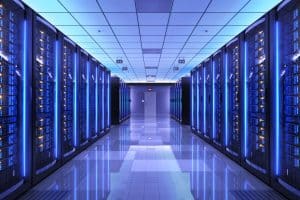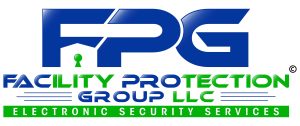 In today’s digital landscape, data centers are the backbone of countless organizations, housing sensitive information that is critical to operations. As the reliance on data continues to grow, so does the need for robust physical security systems. These systems are essential not only for protecting data from cyber threats but also for safeguarding against physical intrusions and environmental hazards. This article explores the myriad benefits of implementing comprehensive physical security measures in data facilities.
In today’s digital landscape, data centers are the backbone of countless organizations, housing sensitive information that is critical to operations. As the reliance on data continues to grow, so does the need for robust physical security systems. These systems are essential not only for protecting data from cyber threats but also for safeguarding against physical intrusions and environmental hazards. This article explores the myriad benefits of implementing comprehensive physical security measures in data facilities.
Understanding Physical Security in Data Centers
Physical security encompasses a range of measures designed to protect the physical assets of a data center. This includes everything from the building itself to the hardware and data stored within. Unlike cybersecurity, which focuses on protecting data from digital threats, physical security aims to prevent unauthorized access and mitigate risks associated with physical breaches.
Key Components of Physical Security
-
- Access Control Systems: These systems regulate who can enter the data center and under what circumstances. They often include key cards, biometric scanners, and visitor management protocols.
- Surveillance Systems: High-definition cameras and motion detectors monitor the premises, providing real-time alerts and recorded footage for review.
- Environmental Controls: These systems manage temperature, humidity, and fire suppression to protect equipment from environmental threats.
- Physical Barriers: Fences, gates, and reinforced doors serve as the first line of defense against unauthorized access.
By integrating these components, data centers can create a multi-layered security approach that significantly reduces the risk of breaches.
The Importance of Physical Security Systems
The significance of physical security systems cannot be overstated. They serve as the first line of defense against a variety of threats, including theft, vandalism, and natural disasters.
Protecting Sensitive Data
Data centers store vast amounts of sensitive information, including financial records, personal data, and proprietary business information. A breach can lead to severe consequences, including financial loss, reputational damage, and legal ramifications. Physical security systems help ensure that only authorized personnel have access to this critical data.
Mitigating Environmental Risks
Data centers are susceptible to environmental hazards such as fires, floods, and power outages. Implementing environmental controls, such as fire suppression systems and climate monitoring, can prevent equipment damage and data loss. For instance, advanced fire detection systems can identify smoke before a fire escalates, allowing for timely intervention.
Enhancing Operational Efficiency
Physical security systems not only protect data but also enhance the overall efficiency of data center operations.
Streamlined Access Management
With modern access control systems, data centers can streamline the process of granting and revoking access to personnel. This ensures that only those who need access to specific areas can enter, reducing the risk of unauthorized access.
Improved Incident Response
Surveillance systems provide valuable insights into security incidents, allowing for quicker response times. In the event of a breach, recorded footage can be reviewed to understand how the incident occurred and what measures can be taken to prevent future occurrences.
Compliance with Regulatory Standards
Many industries are subject to strict regulatory requirements regarding data protection. Physical security systems play a crucial role in helping organizations comply with these regulations.
Meeting Industry Standards
Compliance frameworks such as ISO 27001 and GDPR mandate specific security measures to protect sensitive data. By implementing robust physical security systems, data centers can demonstrate their commitment to safeguarding information and adhering to industry standards.
Avoiding Legal Consequences
Failure to comply with regulatory requirements can result in hefty fines and legal action. By investing in physical security, organizations can mitigate the risk of non-compliance and the associated penalties.
Building Trust with Clients and Stakeholders
In an era where data breaches are increasingly common, clients and stakeholders are more concerned than ever about data security.
Demonstrating Commitment to Security
By implementing comprehensive physical security measures, organizations can showcase their dedication to protecting sensitive information. This builds trust with clients, who are more likely to engage with businesses that prioritize data security.
Enhancing Reputation
A strong reputation for data security can be a competitive advantage. Organizations that invest in physical security systems are better positioned to attract and retain clients, ultimately contributing to long-term success.
Cost-Effectiveness of Physical Security Systems
While the initial investment in physical security systems may seem significant, the long-term benefits often outweigh the costs.
Reducing Potential Losses
The financial implications of a data breach can be staggering. By preventing unauthorized access and mitigating risks, physical security systems can save organizations from potential losses associated with data theft, downtime, and recovery efforts.
Lowering Insurance Premiums
Many insurance providers offer lower premiums for organizations that demonstrate a commitment to security. By investing in physical security systems, data centers may be able to reduce their insurance costs, resulting in significant savings over time.
The Role of Technology in Physical Security
Advancements in technology have revolutionized physical security systems, making them more effective and efficient.
Integration of AI and Machine Learning
Modern security systems often incorporate artificial intelligence and machine learning to enhance threat detection and response capabilities. These technologies can analyze patterns in surveillance footage and identify potential security breaches in real-time.
Remote Monitoring Capabilities
With the rise of cloud-based solutions, data centers can now monitor their security systems remotely. This allows for continuous oversight and quick response to any potential threats, regardless of the time or location.
Training and Awareness for Staff
While physical security systems are essential, the human element cannot be overlooked.
Importance of Employee Training
Regular training sessions for staff on security protocols and best practices can significantly enhance the effectiveness of physical security measures. Employees should be aware of how to identify potential threats and respond appropriately.
Fostering a Security-Conscious Culture
Creating a culture of security within the organization encourages employees to take an active role in protecting sensitive information. This can lead to increased vigilance and a greater likelihood of reporting suspicious activities.
Future Trends in Physical Security
As technology continues to evolve, so too will the landscape of physical security in data centers.
Increased Use of Biometric Authentication
Biometric authentication methods, such as fingerprint and facial recognition, are becoming more prevalent in access control systems. These technologies offer a higher level of security compared to traditional methods, making it more difficult for unauthorized individuals to gain access.
Enhanced Data Analytics for Security
The integration of data analytics into physical security systems allows organizations to gain deeper insights into their security posture. By analyzing trends and patterns, data centers can proactively address vulnerabilities and improve their overall security strategy.
We Provide Physical Security for Technology and Data Facilities
Technology firms and data centers require resilient security solutions to protect sensitive data, safeguard intellectual property, and maintain operational continuity. Physical security solutions, such as surveillance systems and access control, are vital for securing the premises and protecting valuable hardware and equipment.
> Learn More
In an increasingly digital world, the importance of physical security systems for data facilities cannot be overstated. These systems not only protect sensitive information from unauthorized access but also enhance operational efficiency, ensure compliance with regulations, and build trust with clients. By investing in comprehensive physical security measures, organizations can safeguard their most valuable assets and position themselves for long-term success. As technology continues to advance, data centers must remain vigilant and adapt their security strategies to meet evolving threats and challenges.
Contact Us (877-762-6460) for a free consultation!
View Past Projects
—
 About Facility Protection Group
About Facility Protection Group
Facility Protection Group is a Certified Systems Integrator based in the Southeastern United States, specializing in electronic security services supporting both traditional and cloud based Access Control (Card Access), Video Surveillance / CCTV, Audio / Video Intercoms, and Intrusion Alarm Systems. Founded in 2018 and located in Tampa, Florida; Facility Protection Group has assembled a team that has a tremendous wealth of industry knowledge and experience.

 About Facility Protection Group
About Facility Protection Group